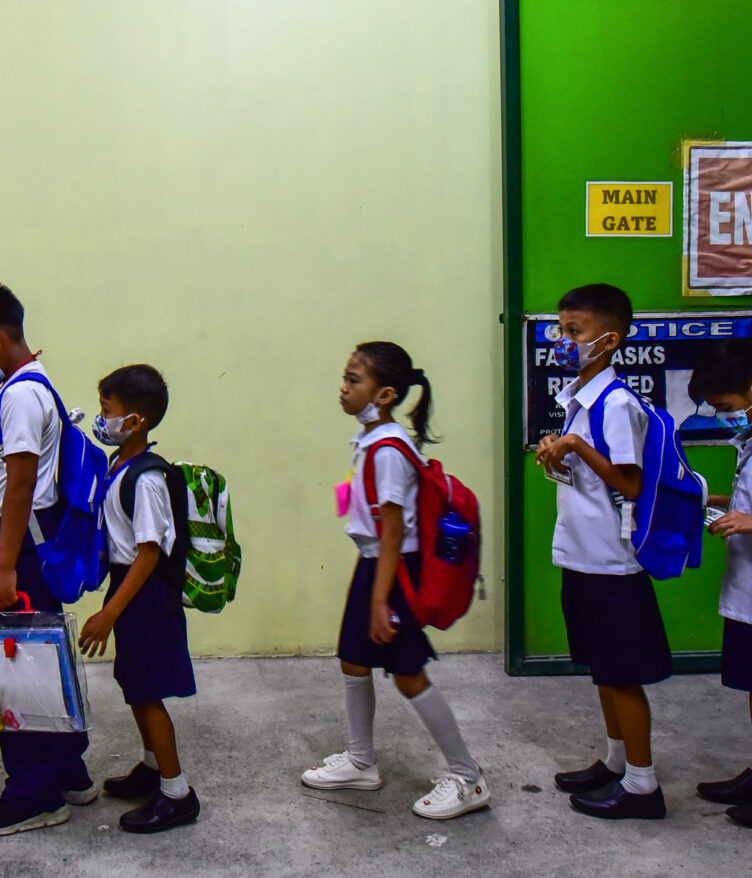EVERY time I am having a conversation with my high school best friends, I observe an obvious change in the way we think. We always have this way of saying, “Ah, baka may traumatic instances sa childhood niya,” instead of going through our old ways of “Ang pangit naman ng ugali niya.” We’ve developed this habit of trying to understand what the person is going through, or what they’ve been through.
We’re five girls in our friendship. Every time one of us brings up someone we’re having a hard time understanding, it becomes a chikahan session, yes, but also a quiet act of empathy. Everyone tries to make sense of things, not in a preachy, “let’s psychoanalyze everyone” way, but with genuine curiosity and an openness to multiple angles. “Baka kasi…” one of us would say. “Possible, pero baka rin kasi nung bata pa siya…” another would add. And it would usually end with something like, “Mare-realize niya rin ’yan,” or “Anyway, tao lang din siya.”
And I’m sure this isn’t just us. I see it in conversations with classmates and even with strangers I meet when I travel to coastal provinces. Either people don’t care, or they do – and when they do, it’s often with a level of compassion that wasn’t always common a decade ago. Even online, it’s visible. Content creators now include skits where they act out this kind of empathy: pausing before reacting, taking a breath, and going “What happened to them?” instead of “What’s wrong with them?”
This shift isn’t random. It reflects a larger cultural evolution, partly thanks to the language of therapy and trauma going mainstream. The rise of mental health advocacy, especially among Gen Z, has normalized concepts like inner child work, emotional regulation, boundaries, and triggers. We’ve turned what used to be clinical or academic concepts into tools for everyday conversation. Think of how often phrases like “attachment style” or “generational trauma” now appear on TikTok or in meme pages. They’re not always used correctly, sure, but it shows that people are trying to make sense of pain with language. That’s powerful.
According to a 2022 study by the American Psychological Association, Gen Z reports the highest levels of stress and mental health struggles, but they’re also the most likely to seek help and to speak openly about it. That emotional fluency spills into how we perceive others. We’re growing up in a world where being emotionally literate is no longer seen as soft, it’s just survival.
Our generation has also learned, sometimes the hard way, that judgment is easy, but context takes effort. Cancel culture may have sparked the fear of saying the wrong thing, but now we’re seeing a slower, more thoughtful aftermath. Instead of quick cancellations, we see people talking about accountability arcs or healing journeys. Take public apologies, for instance. A few years ago, it was enough to say “I’m sorry if I offended anyone.” Now, the public demands depth. They want the person to show growth, to share what they’ve learned, and to explain how they’ll do better.
Even memes reflect this shift. That viral meme that goes “You never know if someone is rude because they’re just rude, or if their parents never hugged them” is both a joke and a mirror. We laugh, but we also nod in recognition. These tiny, funny windows into human behavior often hold big truths about how people now value personal histories in understanding present actions.
Of course, there’s a line. Understanding isn’t the same as excusing. Holding space for someone’s backstory doesn’t mean tolerating harmful behavior. But the way we approach people now seems more grounded in care than in contempt. Maybe it’s because we’ve all been misunderstood at some point, and we know how it feels. Maybe it’s because we’ve seen that hurt people really do hurt people, and healing people, when given the chance, can change.
So yes, this is why we don’t judge so fast anymore. It’s not because we’ve become saints overnight. It’s because we’ve learned to look beyond the moment, to squint a little harder, to listen with our hearts. And that’s not softness. That’s a strength for our generation.
With reports from Kyla Vivero
How useful was this post?
Click on a star to rate it!
Average rating 0 / 5. Vote count: 0
No votes so far! Be the first to rate this post.
We are sorry that this post was not useful for you!
Let us improve this post!
Tell us how we can improve this post?







